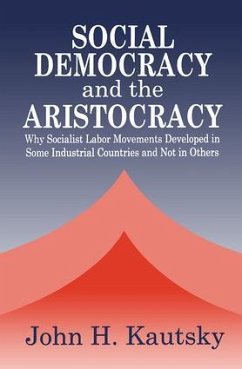Ever since the rise of mass labor movements in the late nineteenth century, socialism has been seen as an inevitable and antagonistic response to capitalism and the spread of industrialization. Over the course of the twentieth century, however, socialism's failure to gain ground in the United States and most of the non-Western world exposed the limited, Eurocentric views of socialist theorists, and also the inadequacy of the theory as it applied to Europe as well. John Kautsky argues that a key factor in the development of social democratic labor movements was the persistence of powerful remnants of aristocratic institutions and ideologies whose survival into the industrial age preserved exclusionary hierarchies. These led, in turn, to radicalism and class consciousness among workers. Kautsky traces the evolution of socialist labor movements in Europe and Japan where aristocratic elements were still strong, detailing the survival of aristocratic privilege and the concomitants of worker class consciousness and demands for equality. He shows how social democratic reliance on free elections was primarily a weapon against the aristocracy rather than capitalism. Contradicting socialist theory, working-class growth came to an end, class lines became blurred, and a considerable degree of equality was achieved through the welfare state. Kautsky turns to those countries that were sufficiently industrialized to have large numbers of workers, but also had reasonably free elections, civil liberties, and less repression of trade unions. Though the United States, Canada, post-Soviet Russia, Mexico, and India have very different histories and societies, their workers have not confronted a powerfularistocracy. Great Britain, the first and for long the most advanced industrial country, was virtually the last to develop a socialist labor movement. In contrast, socialist movements in Canada and the United States, where egalitarian traditions were strong, found little s
Hinweis: Dieser Artikel kann nur an eine deutsche Lieferadresse ausgeliefert werden.
Hinweis: Dieser Artikel kann nur an eine deutsche Lieferadresse ausgeliefert werden.








